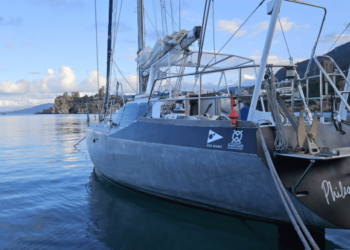Navigating the Currents of Change: Aqua-Spark’s Investment in Africa’s Aquaculture – As Africa’s population is projected to grow from 1.5 billion to 2.5 billion by 2050, the demand for fish is expected to significantly increase, from the current annual consumption of about 10 million tonnes to between 16 million and 29 million tonnes. This surge is against the backdrop of overexploited wild catch fisheries, emphasizing the urgent need for expanded aquaculture production on the continent. Aqua-Spark, a Netherlands-based investment firm specializing in aquaculture, has launched a dedicated Africa fund to address this demand by investing across the continent’s aquaculture value chain.
Fadoua Boudiba, the Africa lead for Aqua-Spark, highlights that despite Africa’s ample resources to support domestic fish production, about 40% of the fish consumed on the continent is imported. This presents a significant opportunity for growth in the aquaculture sector, not just in fish farming but throughout the entire value chain, including areas such as alternative fish feed ingredients, cold-chain logistics, distribution, and online marketplaces for fish and farming inputs.
Aqua-Spark’s focus is not limited to specific fish species, but tilapia and catfish have been identified as having substantial growth potential. Tilapia, in particular, is seen as a key species to meet the growing fish demand in Africa. Despite many tilapia species being native to the continent, sub-Saharan Africa’s production is significantly lower than that of global leaders. Catfish production, largely concentrated in Nigeria, offers a model for growth, particularly through small- and medium-scale farms, and is gaining traction in countries like Ghana and Uganda.
Beyond fish, Aqua-Spark sees opportunities in the cultivation of seaweed, sea cucumber, and shrimp, and in innovations like the use of black soldier fly in fish feed. The firm believes that investment in these areas can contribute to the sustainable growth of aquaculture in Africa.
Regarding promising markets for investment, East Africa, and specifically Kenya, along with Nigeria and Ghana, are identified as regions with advanced aquaculture industries and significant opportunities. However, challenges such as fish deficits, which exceed 300,000 tonnes in Kenya and 500,000 tonnes in Nigeria, underscore the need for increased production and investment. Aqua-Spark is also exploring opportunities in French-speaking African countries, where different investment approaches, such as fully integrated models that include hatcheries, feed production, retail, and distribution, may be more viable.
Aqua-Spark has already made investments in four aquaculture-related companies in Africa:
1. Chicoa Fish Farm in Mozambique focuses on tilapia production in Cahora Bassa lake and aims to become one of the largest producers in the region.
2. Indian Ocean Trepang in Madagascar specializes in cultivating sea cucumber, targeting global markets, particularly in China and other Asian countries.
3. Lake Harvest operates in Southern and East Africa, cultivating tilapia in Lake Kariba and Lake Victoria, with investments in processing and distribution networks.
4. Aquarech in Kenya, a tech-enabled platform, facilitates trade in fish feed and fingerlings, supports small-scale fish farmers with training, and provides financing options for feed purchases.
Boudiba emphasizes the importance of quality fish feed in achieving quality fish production and highlights the value of tech-enabled companies like Aquarech in collecting valuable industry data in a nascent market. Aqua-Spark’s investments and focus areas reflect a comprehensive approach to supporting the growth of sustainable aquaculture across Africa, addressing both the immediate need for increased fish production and the long-term opportunities throughout the aquaculture value chain.
Navigating the Currents of Change: Aqua-Spark’s Investment in Africa’s Aquaculture









